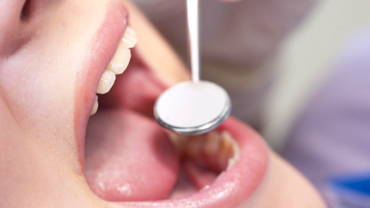
Recurrent aphthous stomatitis (RAS) known as canker sores has perplexed the medical world for as long as they have appeared in people's oral cavities. These benign and non-contagious mouth ulcers although sometimes very small cause a great deal of pain and discomfort. They can interfere with eating drinking and articulation and in more severe cases they can be debilitating. RAS affects more than 2.5 billion people worldwide and is the most common oral disease in North America.
What causes RAS?
So why do people get canker sores? The answer is not clear. Most specialists and researchers do not point to a single cause but rather to several pathological states yielding the same clinical characteristics. Although the real cause is unknown there are many factors that can trigger RAS. These include anemia (caused by the lack of iron folates and B vitamins) neutropenia local trauma emotional stress metabolic disorders hormonal disorders and chronic diseases which cause immunodeficiency.
RAS is usually first noticed during childhood or adolescence. In addition to genetic influences ulcers can accompany systemic diseases and conditions such as allergic reactions Crohn's disease ulcerative colitis gluten sensitivity HIV infection and Behet's disease.
Stress is directly correlated to the exacerbation of the ulceration which can be explained by either a compromised immune system or by what is called parafunctional activities such as lip or cheek chewing during times of stress.
Unfortunately there is not yet a cure for RAS and treatment has been limited to the local or systemic use of corticosteroids immunostimulants and vitamin therapy which alleviate the symptomatic pain and try to speed healing of the mucosal lining. Low-level laser therapy has also been shown to decrease the healing time pain intensity size and recurrence of the lesions in patients with RAS.
B12 and Folate
Vitamin B12 deficiency was found to play a role in the underlying etiology of aphthous stomatitis giving promise to B12 supplementation as an added treatment for RAS. Patients with RAS were found to have lower dietary intakes of vitamin B12 and folate than the control group indicating a link between the etiology of RAS and hematological deficiencies of both vitamin B12 and folate. Low red cell folate levels were found in 47% of patients with RAS as compared to the control group showing a statistically significant low red cell folate in the RAS patients. Another study found both serum B12 and red blood cell folate to be significantly lower in RAS patients.
The use of vitamin B12 and folate is simple inexpensive and low-risk. One study showed that patients with RAS had improved symptoms from B12 supplementation in spite of having no signs of clinical deficiency.
In light of the complex causes of RAS and other individualized sensitivities that may trigger it therapeutic vitamin dosage must be formulated for the patient to address the metabolic management of the underlying processes of RAS.